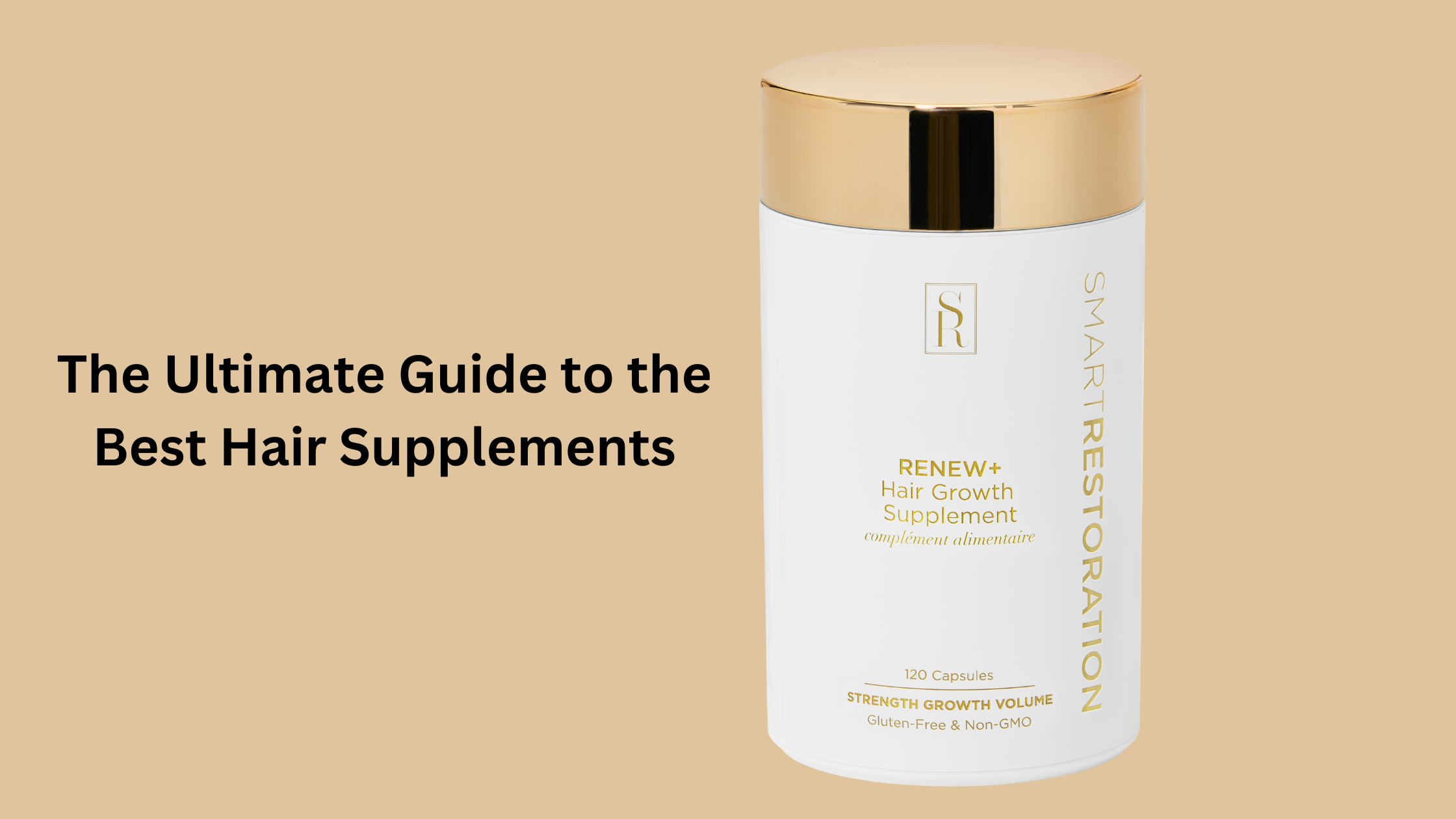Attaining healthy, beautiful hair requires more than just good supplements and conditioners. Hair health relies on different factors, including diet, lifestyle, and genetics. Hair accessories have become increasingly dominant, as they can fill nutritional holes that support hair growth, strength, and stability.
In this guide, we'll explore the best hair supplements, understand their role in hair health, and learn how they can address distinct hair problems.
Introduction to hair supplement
Healthy hair is usually seen as a sign of beauty and life, but keeping it in optimal condition requires more than simple care. Internal nourishment is just as essential. Hair supplements can play a pivotal role in reaching lush, strong locks by providing the nutrients needed for growth and health. This guide covers everything from understanding hair health to the critical nutrients in the best hair supplements.
Understanding Hair Health
Hair Health: A Complex Balance
Hair health relies on a fragile balance of vitamins, minerals, proteins, and healthy fats. Since hair contains keratin protein, amino acids are paramount building blocks for growth and repair. Flaws in essential nutrients can lead to hair problems such as thinning, breakage, and slow growth. Hair supplements aim to fill these nutritional voids and support the body in maintaining strong, healthy hair.
Factors Influencing Hair Health
Different factors affect hair health, from lifestyle to genetics. Here are the main influences to consider:
- Nutrition: Nutrient deficiencies are a specific reason for hair issues. For instance, lacking iron, biotin, or Vitamin D can lead to hair loss and weakened strands.
- Hormonal Changes: Hormonal shifts, such as those during pregnancy or menopause, can impact hair's texture, thickness, and growth rate.
- Aging: As we age, hair inherently thins and becomes more delicate. Supplementing with the proper nutrients can help counteract some of these effects.
The Science Behind Hair Supplements
Hair supplements are developed to address common nutrient deficiencies that affect hair health. They typically blend vitamins, minerals, and amino acids that donate to hair power, thickness, and shine. Let's explore how these supplements work and the nutrients they commonly contain.
How Hair Supplements Work
Hair supplements support hair health from the inside out. They provide essential nutrients that nourish hair strands, stimulate the scalp, and strengthen hair shafts. When taken consistently, these nutrients promote cellular functions necessary for healthy hair.
Here's a closer look at how hair supplements benefit the hair:
- Promote Hair Growth: Nutrients like biotin and Vitamin B complex support keratin production, enhancing hair muscle and growth.
- Nourish Hair Follicles: Antioxidants like Vitamin C and Vitamin E protect hair follicles from oxidative stress, preserving scalp and follicle health.
Critical Nutrients for Hair Health
- Biotin (Vitamin B7): Known as the "hair increase vitamin," biotin is essential for metabolizing amino acids for keratin production. Biotin defects can show brittle hair and hair loss.
- Collagen: Collagen provides amino acids crucial for keratin synthesis, improving hair elasticity and reducing brittleness. It also supports scalp health, which is vital for hair growth.
- Vitamin D: This vitamin recreates a role in hair follicle cycling. A deficiency in Vitamin D is linked to hair loss and reduced hair density.
- Iron: Iron is essential for providing oxygen to hair follicles. Low iron levels are associated with hair shedding and thinning, particularly in women.
- Zinc: Zinc supports protein synthesis and scalp health. It helps maintain oil-secreting glands about strands, preventing hair from becoming dry and brittle.
- Vitamin C: An antioxidant, Vitamin C helps in collagen production and protects against oxidative stress, promoting overall scalp health.
- Omega-3 Fatty Acids: Located in fish oil, these heavy acids provide essential moisture to hair, relieving dryness and promoting shine.
Benefits of Hair Supplements
Hair supplements offer a range of benefits, including:
- Strengthened Hair: With nutrients like biotin, keratin, and Vitamin E, supplements can make hair more robust and less prone to breakage.
- Improved Thickness: Collagen and amino acids help improve hair's thickness by enhancing keratin structure.
- Reduced Hair Loss: Addressing deficiencies in iron and zinc can help reduce hair loss and encourage new growth.
- Enhanced Shine and Smoothness: Omega-3s and Vitamin E provide moisture and antioxidants that improve hair's smoothness and shine.
- Support for Scalp Health: Many supplements include nutrients that benefit scalp health, creating a supporting environment for hair growth.
Choosing the Best Hair Supplements
Selecting the best hair supplement depends on your hair concerns and nutritional needs. Look for supplements with clinically proven ingredients and avoid products with extreme fillers. Always confer with a healthcare provider before beginning any new supplement, especially if you have underlying health conditions.
Incorporating the right hair supplements into your routine, a station diet and good hair care can significantly affect your hair's appearance and health. With the right approach, you can reach more adequate, fuller, and vibrant hair over time.
Related help, like Smart Restoration, offers more tips on choosing high-quality supplements and understanding their benefits.
Conclusion: Finding the Best Hair Supplements for Your Needs
Hair supplements offer a practical, targeted strategy to improve hair health from the inside out. Addressing joint nutrient depletion can support hair growth, decrease breakage, and enhance thickness, shine, and overall strength.
However, supplements should not replace a flat diet and a proper hair care routine. Identifying your unique hair concerns and understanding the role of each nutrient can help you choose the best hair supplement for your goals. Conferring with a healthcare provider before starting any new supplement is also essential, specifically if you have specific health conditions. With a mindful system of supplementation and self-care, vibrant, resilient hair is within reach. By nourishing your hair from within, you can help create a basis for healthier, more beautiful locks over time. For further guidance on selecting quality supplements, visit resources like Smart Restoration.
